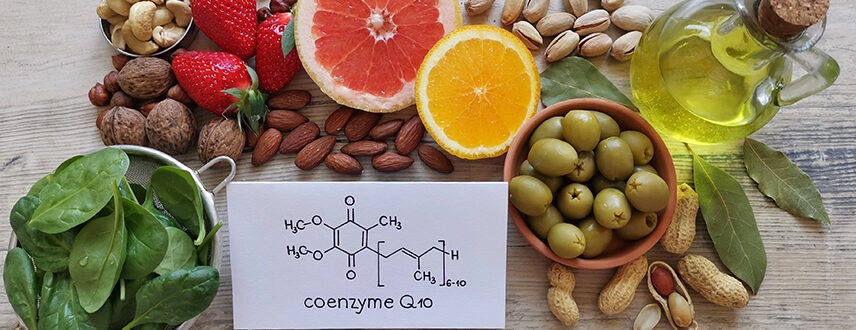
Coenzyme Q10 (CoQ10) is a naturally occurring antioxidant found in nearly every cell of the body, playing a crucial role in energy production and overall cellular health. As research continues to highlight its importance, CoQ10 has gained attention for its potential benefits in supporting cardiovascular health. How does CoQ10 impact heart health and why is it an essential supplement for many individuals?
What is CoQ10?
CoQ10, also known as ubiquinone, is a fat-soluble compound that helps generate energy in the mitochondria—the powerhouse of cells. It also acts as a potent antioxidant, protecting cells from oxidative damage. While the body naturally produces CoQ10, its levels tend to decline with age, as well as due to factors such as stress, poor diet, and the use of certain medications, particularly statins.
The Role of CoQ10 and Heart Health
The heart is one of the most energy-demanding organs and relies heavily on CoQ10 for optimal function by supporting:
- Energy Production: The heart requires a continuous supply of energy to pump blood efficiently. CoQ10 aids in ATP (adenosine triphosphate) synthesis, the primary energy carrier in cells, ensuring the heart functions effectively.
- Antioxidant Protection: Oxidative stress is a major contributor to cardiovascular diseases, leading to inflammation and damage to blood vessels. CoQ10’s antioxidant properties help reduce oxidative stress, thus protecting the heart and arteries from damage.
- Blood Pressure Regulation: Some studies suggest that CoQ10 may help lower blood pressure by improving endothelial function and promoting vasodilation, allowing for better blood flow.
- Cholesterol and Lipid Profile Improvement: CoQ10 may contribute to balancing cholesterol levels by preventing the oxidation of LDL cholesterol, a key factor in the development of atherosclerosis (hardening of the arteries).
- Heart Failure Management: Research indicates that CoQ10 supplementation may improve symptoms of heart failure by enhancing cardiac energy production and reducing inflammation.
- Mitigating Statin Side Effects: Statins, commonly used to lower cholesterol, can deplete CoQ10 levels, leading to muscle weakness and fatigue. Supplementing with CoQ10 may help counteract these side effects.
Sources of CoQ10
While the body produces CoQ10 naturally, it can also be obtained from dietary sources such as:
- Fatty fish (salmon, mackerel, tuna)
- Organ meats (liver, heart, kidneys)
- Nuts and seeds (pistachios, sesame seeds)
- Whole grains
- Vegetables (spinach, broccoli, cauliflower)
For individuals with heart conditions or those taking statins, supplementation may be recommended to maintain adequate CoQ10 levels.
CoQ10 is a crucial nutrient for heart health, supporting energy production, reducing oxidative stress, and potentially improving cardiovascular conditions such as high blood pressure and heart disease. While dietary intake can contribute to CoQ10 levels, supplementation may be necessary for those with deficiencies or individuals on statin medications. As always, it’s advisable to consult with a healthcare professional before beginning any new supplement regimen to determine the right dosage and ensure its compatibility with existing health conditions and medications.
